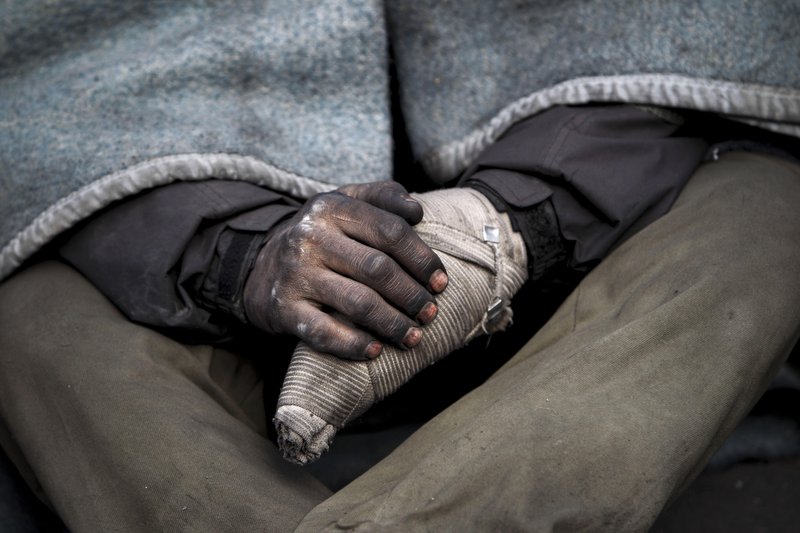CAIRO – Egypt’s vice president met with the outlawed Muslim Brotherhood and other opposition groups for the first time Sunday and offered sweeping concessions, including granting press freedom and rolling back police powers in the government’s latest attempt to try to end nearly two weeks of upheaval.
But the opposition leaders held firm to a demand the government rejects: that President Hosni Mubarak step down immediately. And the source of the opposition’s sudden power — the youthful protesters filling Cairo’s main square — said they weren’t even represented at the talks and won’t negotiate until Mubarak is gone.
“None of those who attended represent us,” said Khaled Abdul-Hamid, one leader of a new coalition representing at least five youth movements that organized the 13-day-old protests. “We are determined to press on until our number one demand is met” — the ouster of Mubarak.
“The regime is retreating,” Abdul-Hamid said. “It is making more concessions every day.”
At the same time, there were signs that the paralysis gripping the country since the crisis began was easing Sunday, the first day of Egypt’s work week.
Some schools reopened for the first time in more than a week, and so did banks — though for only three hours, with long lines outside. A night curfew remains, and tanks continue to ring the city’s central square and guard government buildings, embassies and other important institutions.
Since protests began Jan. 25, the 82-year-old Mubarak has pledged not to seek another term in elections to be held in September. The government promised that his son Gamal, who had widely been expected to succeed him, will not do so.
Mubarak appointed a vice president — Omar Suleiman — for the first time since he took office three decades ago.
He sacked his Cabinet, named a new one and promised reforms. And on Saturday, the top leaders of the ruling party were purged.
Sunday brought another concession that would have been unimaginable just a month ago: Suleiman’s meeting with opposition groups including the fundamentalist Muslim Brotherhood, which has been outlawed since 1954 but is the ruling party’s largest rival.
Egypt’s opposition — essentially banned by the government for decades — has long been hampered by a lack of cohesiveness. Sunday’s talks could be a sign the government is trying to divide and conquer as it tries to placate protesters without giving in to their chief demand.
Mubarak is insisting that he cannot stand down now or it would only deepen the chaos in his country. The United States gave key backing to the regime’s gradual changes Saturday, after President Obama signaled more strongly that it was time for Mubarak to leave.
On Sunday, speaking to Fox News ahead of the Super Bowl broadcast, Obama said he would not be drawn into predicting when Mubarak would leave office. “Only he knows what he’s going to do,” Obama said.
Obama said he hopes to see a representative government emerge, and he played down concerns that Egypt could become hostile to U.S. interests if the Muslim Brotherhood becomes the dominant political force.
“I think that the Muslim Brotherhood is one faction in Egypt,” Obama said. “They don’t have majority support.”
The Brotherhood and another group that attended Sunday’s talks said afterward that they were only a first step in a dialogue which has yet to meet their central demand for Mubarak’s immediate ouster.
“I think Mubarak will have to stop being stubborn by the end of this week because the country cannot take more million-strong protests,” said Brotherhood representative Essam el-Erian.
Suleiman, who is leading the government’s management of the crisis, offered a series of new concessions, saying the government would no longer hamper freedom of press and won’t interfere with text messaging or the Internet.
He proposed setting up a committee of judiciary and political figures to study proposed constitutional reforms that would allow more candidates to run for president and impose term limits on the presidency, the state news agency reported.
The offer included a pledge not to harass those participating in anti-government protests, which have drawn hundreds of thousands at the biggest rallies.
One of the biggest fears of protesters is that if Mubarak or his close confidant Suleiman remain in power, they will exact revenge for the humiliating demonstrations by rounding up protesters and torturing them.
Send questions/comments to the editors.



Success. Please wait for the page to reload. If the page does not reload within 5 seconds, please refresh the page.
Enter your email and password to access comments.
Hi, to comment on stories you must . This profile is in addition to your subscription and website login.
Already have a commenting profile? .
Invalid username/password.
Please check your email to confirm and complete your registration.
Only subscribers are eligible to post comments. Please subscribe or login first for digital access. Here’s why.
Use the form below to reset your password. When you've submitted your account email, we will send an email with a reset code.